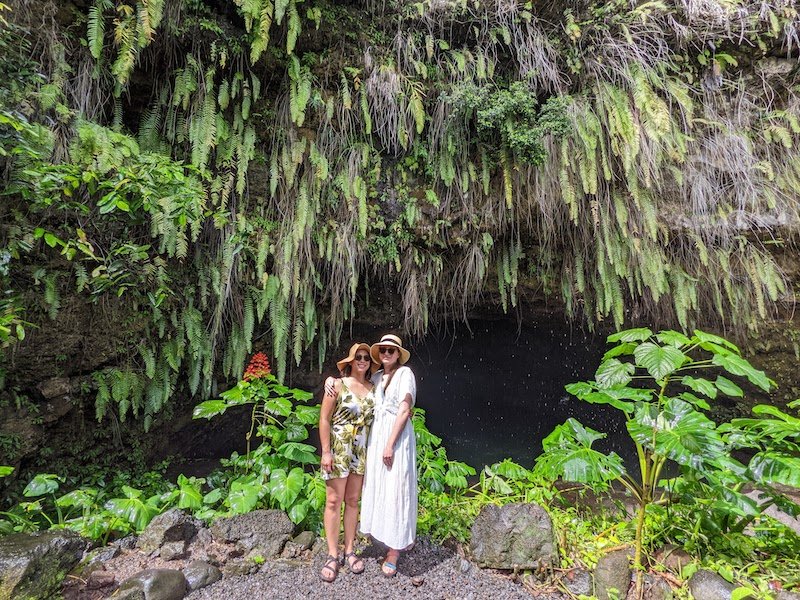It’s a sad reality that LGTBQ couples have to think particularly carefully about their travel destinations when it comes to safety.
Unfortunately, many otherwise idyllic places can be dangerous for queer people.
Many typical ‘resort’ destinations are in countries in which LGBTQ identities or same-sex intimacy are policed and potentially punished.
For example, countries like the Maldives and Jamaica — two popular honeymoon destinations — have strict laws against homosexual activity.
Many queer couples choose to travel to non-LGBTQ friendly countries and keep their couple status on the down-low, or only stay in resorts where there is a more laissez-faire attitude.
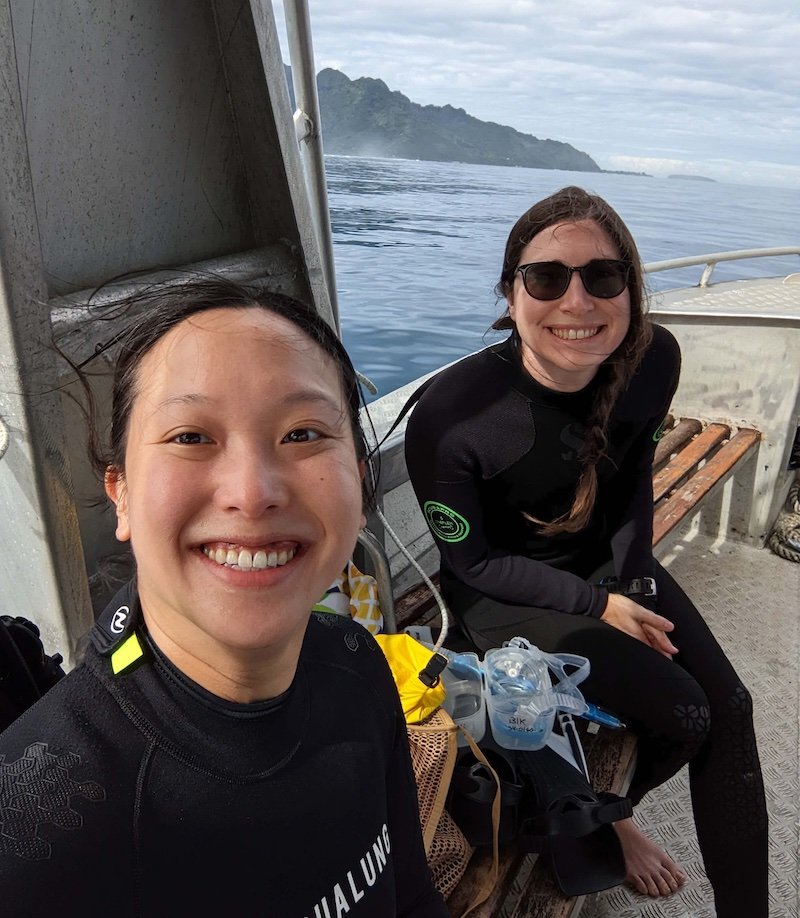
However, there’s something to be said for feeling safe to show your affections for your partner in public, amongst the people and the culture and not just in a sanitized resort.
Luckily, French Polynesia is a safe place to do just that, and if you’re looking for a romantic place to travel with your queer partner — whether you pick a family-owned guesthouse or a fancy overwater bungalow in Bora Bora or Moorea — it’s a fantastic choice.
During my 5 days in Tahiti and my 5 days in Moorea, I didn’t have any negative experiences traveling as part of a visibly queer, visibly interracial couple.
While it’s not certain you won’t experience any homophobia or transphobia — it’s a lot less likely in Tahiti and its islands than in many places in the world.
While there are many reasons for this, a large reason is because the native Polynesian culture does not enforce a strict gender binary the way that Christian and other monotheistic colonizing forces have historically done.
Table of Contents
My Experience Traveling to Tahiti as a Queer Woman
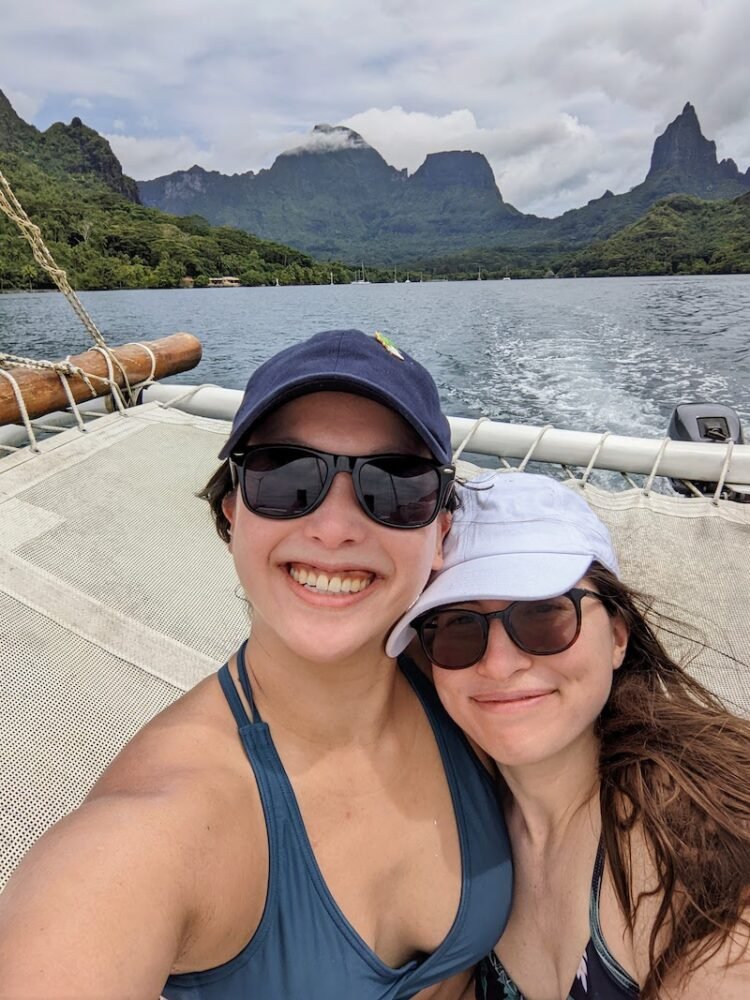
I’m writing this post mostly because I think there’s a dearth of writing on the topic of gay Tahiti travel from a female perspective (and gay travel writing in general tends to center the cis gay male experience).
Before traveling to Tahiti, I wasn’t sure what to expect. I did some research and saw the laws were permissive of same-sex relationships and that the culture was generally tolerant of it, so I did feel safe being out while there.
That said, it was my first time traveling as part of a visibly queer couple so I was a little hesitant at first, but I quickly felt at ease traveling on Moorea and Tahiti.
We felt safe to engage in light PDA that showed us as a couple — hand-holding in public, kissing on the cheek, etc. — and we didn’t encounter any off remarks or negativity because of it.
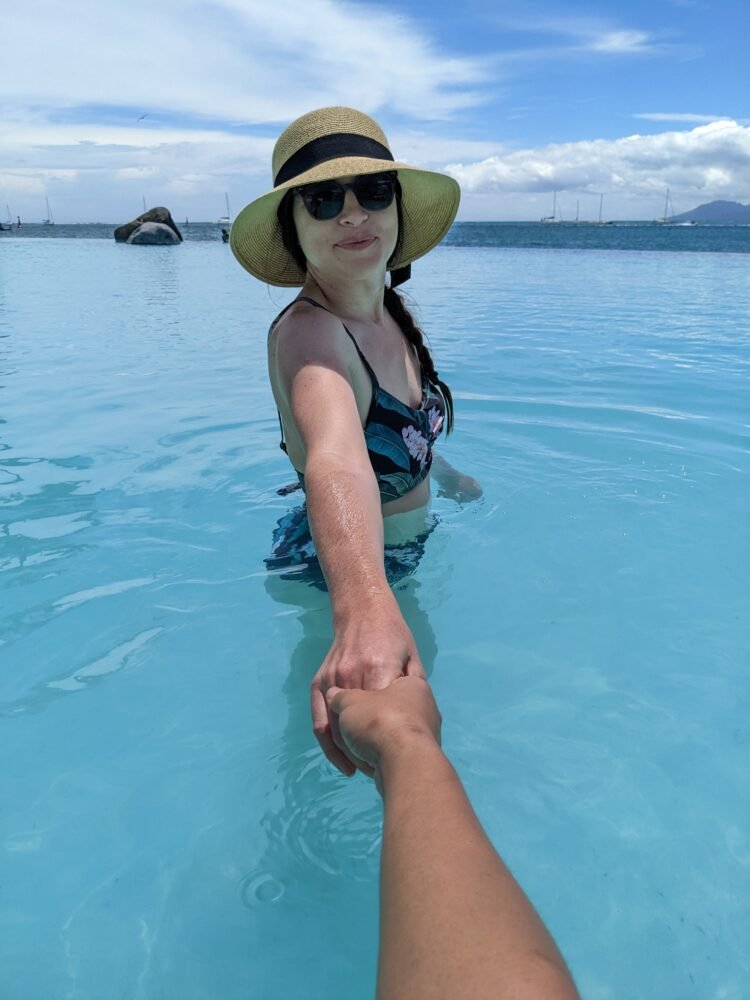
We traveled independently and didn’t go on a cruise or vacation package, choosing instead to rent a car in Tahiti and travel at our own pace.
This way, it was easy to cover all the things to do in Tahiti (primarily diving and waterfall chasing!) and Moorea (primarily snorkeling, diving, and 4×4 touring!) that most appealed to us
We stayed in guesthouses for 8 nights (one in Moorea and one in Tahiti and a resort in Tahiti for 2 nights, so our experience speaks largely to independent travel on both our Moorea itinerary and our Tahiti itinerary, though we also experienced the resort angle in Tahiti.
However, we were only on two islands, Tahiti and Moorea, which besides Bora Bora see the most tourism.
As a result, these islands may generally be more accepting of queerness because they simply see it more often.
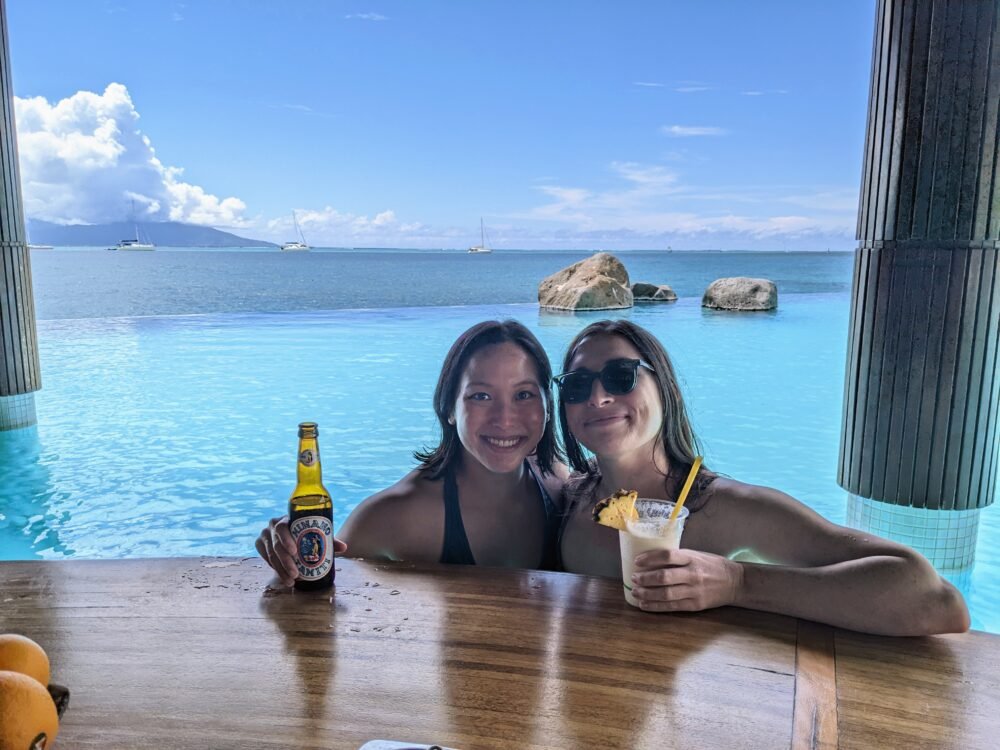
I can’t speak to what it’s like to travel to less frequently visited Tahitian islands, but I’d love to hear about others’ experiences!
Lastly, we went to Tahiti and Moorea as part of a dive trip and didn’t try to experience any gay nightlife in Tahiti, so this post doesn’t have any information on that.
This post is meant more as an informative guide about what it gay Tahiti travel is like, with insight into the culture of the Polynesian islands and how it relates to queerness.
Is It Safe to Travel to Tahiti as a Queer Couple?
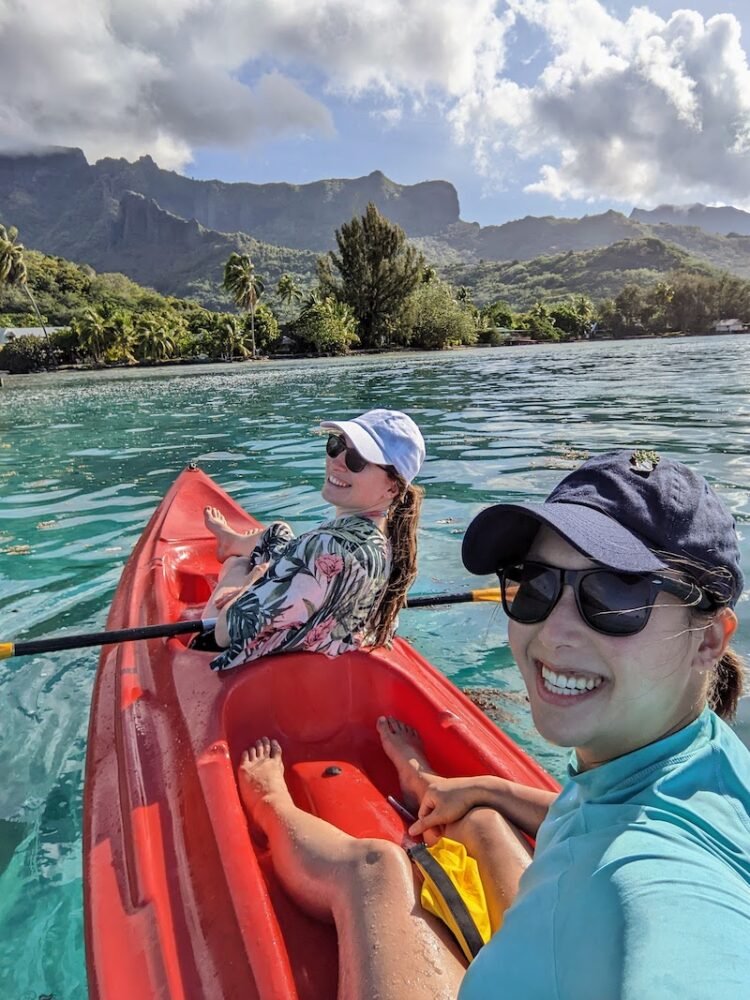
In my opinion: yes, absolutely!
Legally speaking, there are no laws against same-sex activity, relationships, or identities in French Polynesia.
As you can probably guess from the name, French Polynesia is an overseas territory of France.
As a result, French laws for marriage equality and anti-discrimination also apply in French Polynesia.
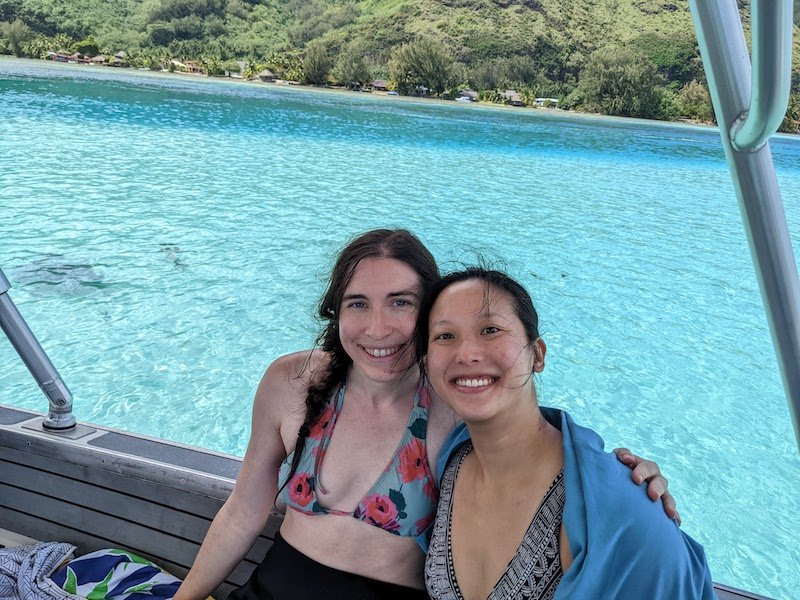
More importantly, prior to French annexation, the islands of Tahiti were a safe place for people of differing sexualities and gender identities.
Indigenous Polynesian culture was, is, and continues to be accepting of a variety of queer identities.
In fact, there have never been any laws on the books in the Tahitian Islands (what is now French Polynesia) banning same-sex activity.
That’s hard for most countries to say and just shows how progressive and accepting Polynesian culture is.
Is It Safe to Travel to Tahiti as a Non-Binary or Trans Person?
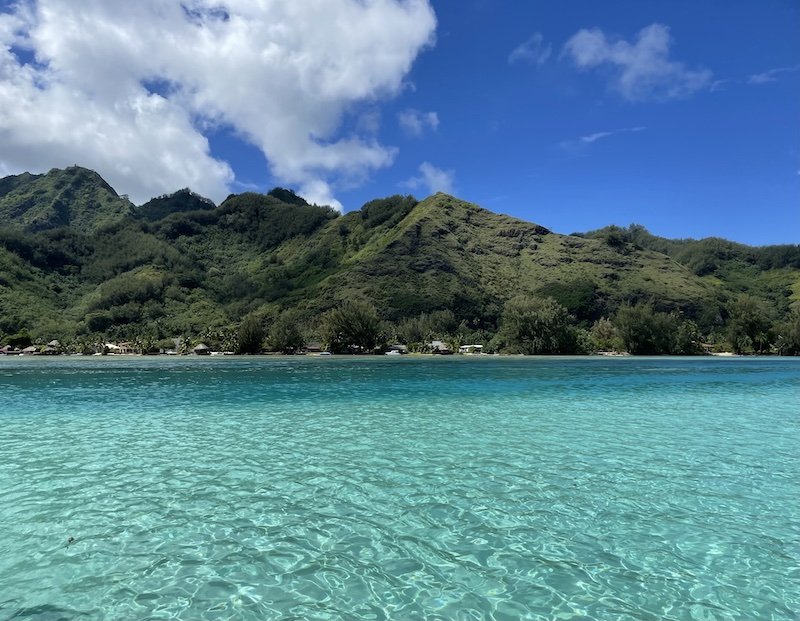
In short: yes, but trans and enby identities have significant historical and cultural importance (as well as baggage) in French Polynesia.
First, let me add the caveat that I am cis, so I am not writing this from a trans perspective.
In writing this section, I’m listening to trans travelers like Dylan Mulvaney as well as doing research on the culture.
Polynesian culture has long had a far more expansive and progressive view of gender than the strict gender binary that has pervaded much of Western ideology.
For centuries, Polynesians have recognized genders beyond male and female. There has long been another gender identity, Māhū, which means in the middle.
In the past, māhū primarily referred to people who were assigned male at birth (abbreviated as AMAB), who were more “feminine” and encouraged to live their lives out as women.
Historically, māhū played an important role in society as healers, teachers, and spiritual leaders.
In fact, it’s believed that four māhū from Polynesia traveled to the island of Oʻahu in the 16th century to share in their healing arts.
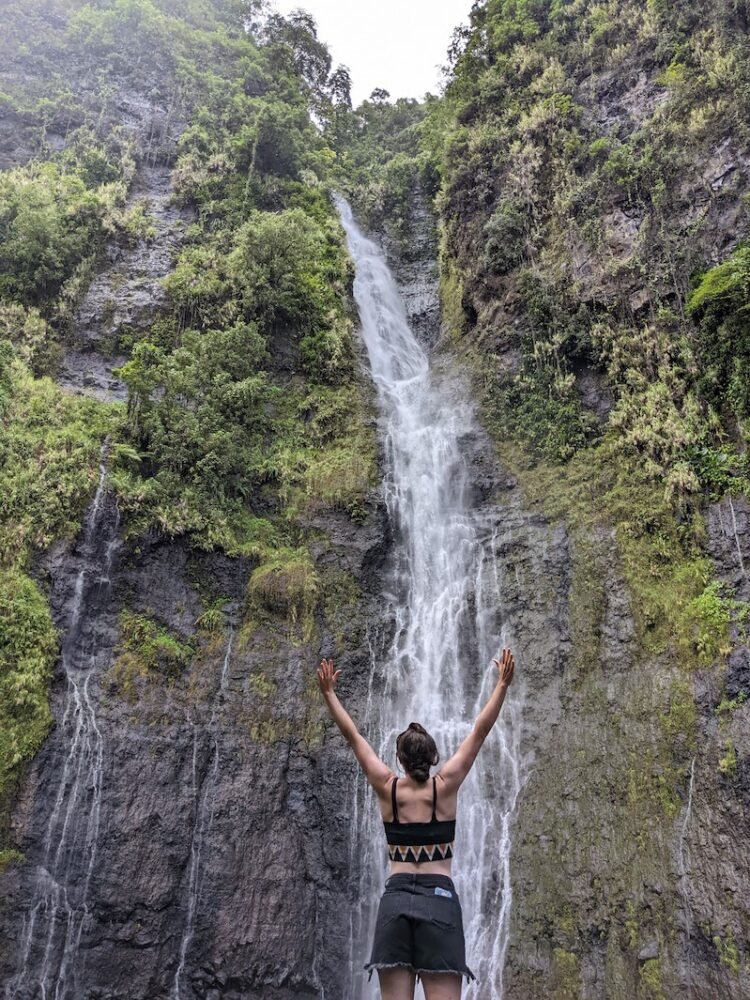
You can find a memorial to this important piece of Polynesian and Native Hawaiian history on Waikiki Beach, where you’ll find the stones of Kapaemāhū dedicated to these healers.
In present day, māhū is a more expansive term that encompasses a variety of trans and non-binary identities and includes AFAB people as well.
It can apply to people who feel their gender embodies both male and female characteristics, similar to the concept of a ‘two-spirit’ person in many Native American cultures.
The term māhū can also apply to those whose gender identity does not match what they were assigned at birth and live as what Western culture would consider a trans identity.
Generally, māhū people are accepted and integrated into Tahitian society, and anecdotally, my girlfriend and I saw a number of queer-presenting and māhū people during my time in Tahiti.
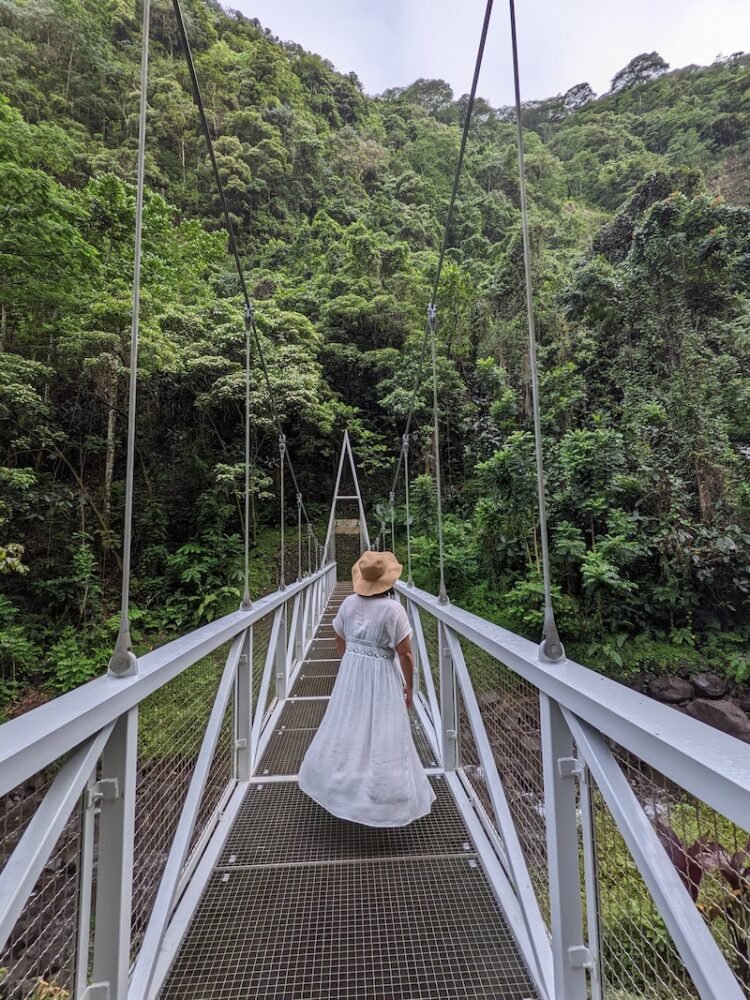
That said, it’s a little more complicated than just that. There’s a subcategory within the māhū identity group, rae rae, which is a more recent idea that is likely tied to the influence of colonization.
The term rae rae is somewhat derogatory, and it is used to refer to Polynesian AMAB people who present as female in a more overt or sexualized way, as opposed to māhū who embody femininity in a more chaste way.
In the article “The Men-Women of the Pacific“, Peruvian novelist and Nobel prize winner Mario Vargas Llosa writes:
“While the mahu is the man-woman with traditional roots in Polynesian society, the Tahitian rae rae is its modern, urban expression, having more in common with the snipped and tucked drag queens of the west, with their hormone and silicone injections, than with the delicate cultural, psychological and social re-creation that is the mahu of the Maori tradition. The mahu is an integral part of society, while the rae rae lives on its margins”
While French Polynesia is generally a very accepting place, no place is utopian or uncomplicated, and there are hierarchies and biases implicit in any social order.
The islands of Tahiti exist at the intersection at their strongly maintained Polynesian culture and history as well as the influence of French colonization.
With colonization brings the importation of outside religions and ideologies, and the present-day acceptance of LGBTQ+ identities in French Polynesia is a result of that blend.
Lastly, Some Disclaimers
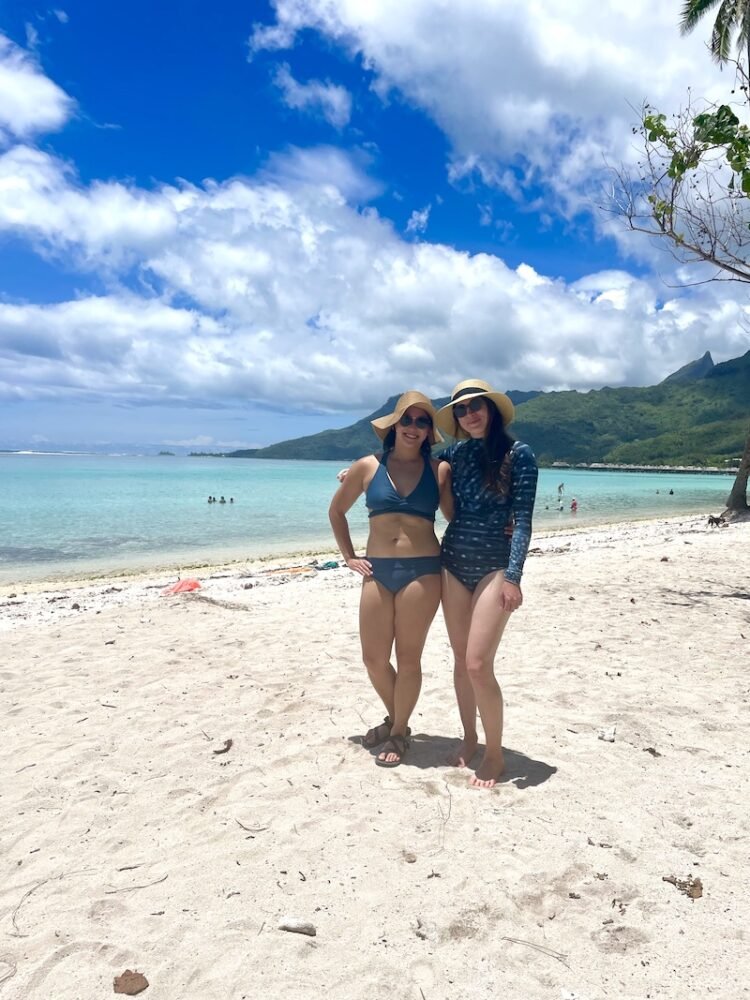
I am writing this piece from the perspective of a bisexual cis woman partnered with a queer cis woman.
I also benefit from white privilege and while my partner is Asian, being together as a couple in a way extends some of my privilege to her.
We are both femme in terms of our gender presentation, and we easily pass as friends if we are not directly showing romantic behavior or public displays of affection.
While women do bear the brunt of misogyny and gender violence, queer female or femme-presenting couples may find it easier to fly under the radar as heterocissexist society tends to erase and overlook WLW couples.
This lack of visibility on the day-to-day can be frustrating to experience, but when traveling in countries with anti-LGTBQ policies, this ‘invisibility’ can give you an additional layer of potential safety.
As a result, many countries’ anti-homosexuality laws enforce policing MLM behavior more heavily.
That’s not to say that queer women are necessarily safe in those countries, but that their behavior is under less scrutiny and it is typically easier to pass.
I’ll also add the caveat that I am newly out and this was my first trip traveling as a couple with a same-sex partner.
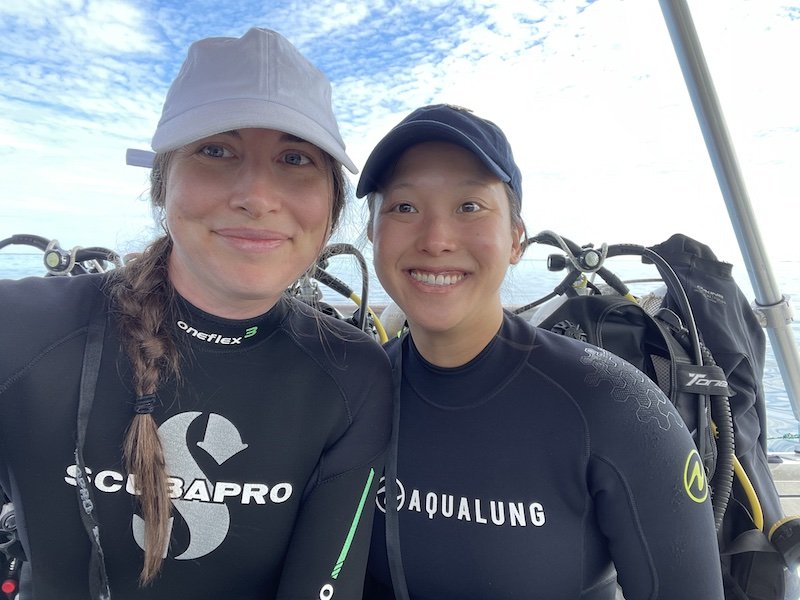
I am learning what to look out for in terms of queer travel safety, which is why this post will speak primarily to my own experience.
Finally, I know that I can’t speak to the personal experience of trans identity. I spoke broadly about what I noticed about trans and non-binary identities, but I have no personal experience I can speak to.
I hope, over time, that these posts can be a collaborative resource — almost like an ongoing Wiki of sorts — so that people at every intersection of queer identity can speak.
If any of my trans/nonbinary friends or readers would like to chime in with their perspective, I will gladly add their point of view!
I’d also love to add the perspective of cis male (or male-presenting) queer couples who have traveled to Tahiti so this post can be as inclusive as possible.
Please leave a comment (it can be done anonymously) if you would like your perspective to be incorporated into the post for future updates.
Allison Green is a former teacher who has been travel blogging since 2016. She has a Masters in Teaching and a B.A. in English and Creative Writing. Her blog posts merge her background as an educator with her experience traveling to 70+ countries to encourage ethical, meaningful travel. She has been a speaker at the World Travel Writers Conference and her writing, photography, and podcasting work has appeared in National Geographic, CNN Arabic, CBC Canada, and Forbes, amongst others. Now a full-time traveler, she has lived in Prague, Sofia, New York City, and the San Francisco Bay Area.
